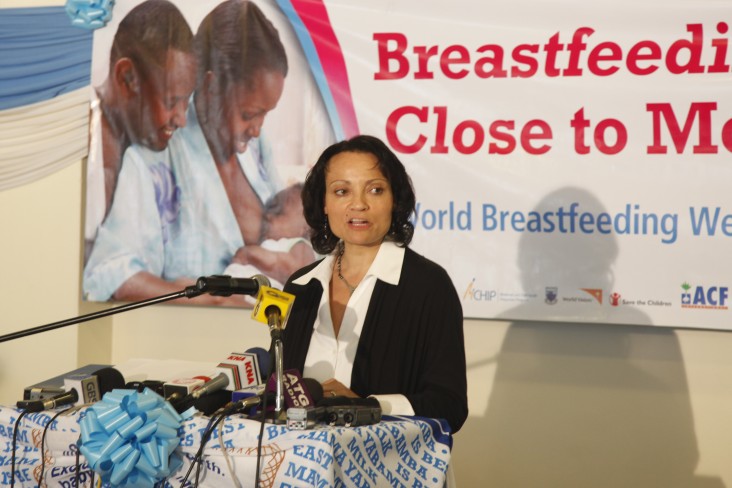
On behalf of the USAID Kenya Mission Director, Karen Freeman, I extend my appreciation to you, Secretary Macharia, for the opportunity to mark the importance of World Breastfeeding Week.
At the heart of USAID Kenya’s assistance to the health sector is the premise that improving the health of mothers and children contributes to social and economic development. There are simple proven interventions that can enhance the quality of life for mothers and children. It is for this reason that USAID Kenya continues to provide support to the Division of Nutrition at the national level through the Maternal and Child Health Integrated Program and to the counties through the AIDS, Population and Health Integrated Assistance service delivery projects, called APHIAplus. These U.S. programs invest in capacity building for community health workers and health facilities to ensure that infant and young child feeding policies are implemented at the household level and in the community.
This is an occasion to appreciate the progress the Government of Kenya and its Ministry of Health have made in the past year, such as the promulgation of the ‘Breast-milk Substitutes Bill’, which regulates the marketing of breast milk substitutes. Kenya also joined the Scaling Up Nutrition – SUN – movement and is following the SUN framework to improve interventions in the first 1000 days of life. This will reduce child mortality and morbidity and ensure lifelong gains in education, poverty reduction and economic growth. The Kenyan government has demonstrated its commitment to providing the best care for newborns, infants and young children and ensured that the right information about infant and young child feeding is given to mothers, parents and communities.
Still, in Kenya, only 32% of infants 0-6 months old are exclusively breastfed, so much remains to be done to promote, protect and support breastfeeding. Exclusive breastfeeding is the single most effective preventative intervention for ensuring child survival. In 2008, The Lancet published a study that estimated that 13 percent of all deaths of children under five years old could be prevented by exclusive breastfeeding, while a further 6 percent of deaths could be prevented by combining exclusive breastfeeding with the timely introduction of appropriate complementary foods after age 6 months.
Ladies and Gentlemen, focusing on the child’s first 1000-day window of opportunity will help Kenya accelerate the achievement of all the MDGs as well as contribute to the realization of the social and economic objectives of Vision 2030.
In closing, I would like to wish the Ministry of Health success in the breastfeeding outreach activities that will take place this week and to reaffirm USAID Kenya’s on-going partnership with the Ministry of Health in the effective implementation of priority health interventions for women and children.
Thank you
Related Speeches
- 6th Mara Day Celebration - Remarks by Brad Arsenault, Deputy Director for East Africa and Operations, Environment Office, USAID Kenya and East Africa
- Signing of a Memorandum of Understanding between Power Africa and the Nile Basin Initiative - Remarks by USAID Kenya and East Africa Deputy Mission Director Dr. Tina Dooley-Jones







Comment
Make a general inquiry or suggest an improvement.